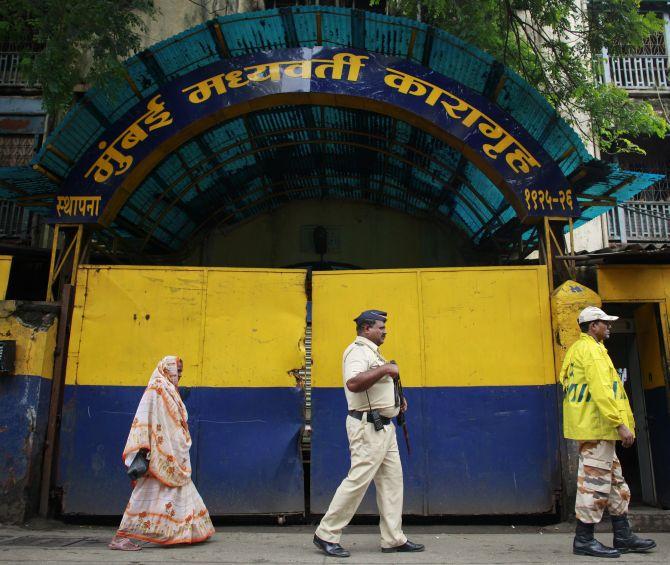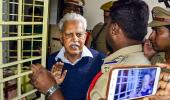Saying that prison inmates do not cease to be human beings and can't be deprived of the fundamental right to life, the Bombay High Court on Thursday directed the Maharashtra government to transfer alleged Maoist leader Nirmala Uppuganti from jail to a hospice for palliative care on account of her terminal cancer.

Uppuganti, an accused in the 2019 Gadchiroli IED blast case, had filed a plea through senior counsel Yug Chaudhry and advocate Payoshi Roy, asking to be shifted to a hospice for palliative care so that she was "properly taken care of during her final days."
A bench of Justices S S Shinde and N J Jamadar directed the state prison authorities to shift Uppuganti from the Byculla women's prison in Mumbai to a hospice by September 15.
The state's counsel, Sangeeta Shinde, however, had opposed Uppuganti's plea.
The state counsel told the HC Uppuganti was accused of a serious offence and was able to move on her own and had been provided the help of two other inmates to take care of her in prison.
The government counsel said as per the advice of Uppuganti's doctors, the prison authorities were taking her to the Tata Memorial Centre, a cancer hospital in Mumbai, three times a week for treatment.
In its order on Thursday, the HC, however, said though Uppuganti was accused of a serious offence and charged under the stringent Unlawful Activities (Prevention) Act (UAPA), refusing her palliative care would breach her fundamental right to protection of life and liberty guaranteed by Article 21 of the Constitution.
"It is trite that the right to life guaranteed to every person by Article 21 of the Constitution is a basic postulate of human right. A prisoner, be he a convict or under-trial or a detenu, does not cease to be a human being, and even when lodged in the jail, he is not deprived of his right to life guaranteed to him under Article 21 of the Constitution, which includes the right to obtain medical treatment," the HC observed.
"A prisoner cannot be deprived of health services as it would violate the guarantee conferred under Article 21 of the Constitution of India," the bench said.
The HC took note of Uppuganti's medical reports that showed that she had metastatic cancer (in advanced stage) that had spread to multiple organs.
It said while Uppuganti was undergoing chemotherapy and radiation therapy, at such advanced stage of cancer, palliative care seemed "indispensable" to minimise her pain and suffering.
"The petitioner has a legitimate right to expect palliative care and nursing," the HC said while directing the jail authorities to transfer Uppuganti from prison to the Shanti Avedna Sadan hospice centre in the city for 12 weeks.
The court directed that the prison authorities must coordinate with the hospice centre and the Tata Memorial Centre to ensure Uppuganti continued receiving her ongoing medical treatment.
The HC directed the state authorities to transfer Uppuganti to the hospice by September 15 and to provide her with necessary police escort there.
It also permitted Uppuganti to have telephonic access to her husband Satyanarayan Rani, her co-accused in the case, who is currently lodged in the Arthur Road Central Prison in Mumbai.
Uppuganti is an accused in the case related to the IED ( improvised explosive device) attack carried out by Naxals in Gadchiroli district of eastern Maharashtra on May 1, 2019. As many as 15 security personnel from the Gadchiroli Quick Response Team and one civilian were killed in the deadly explosion.











 © 2025
© 2025